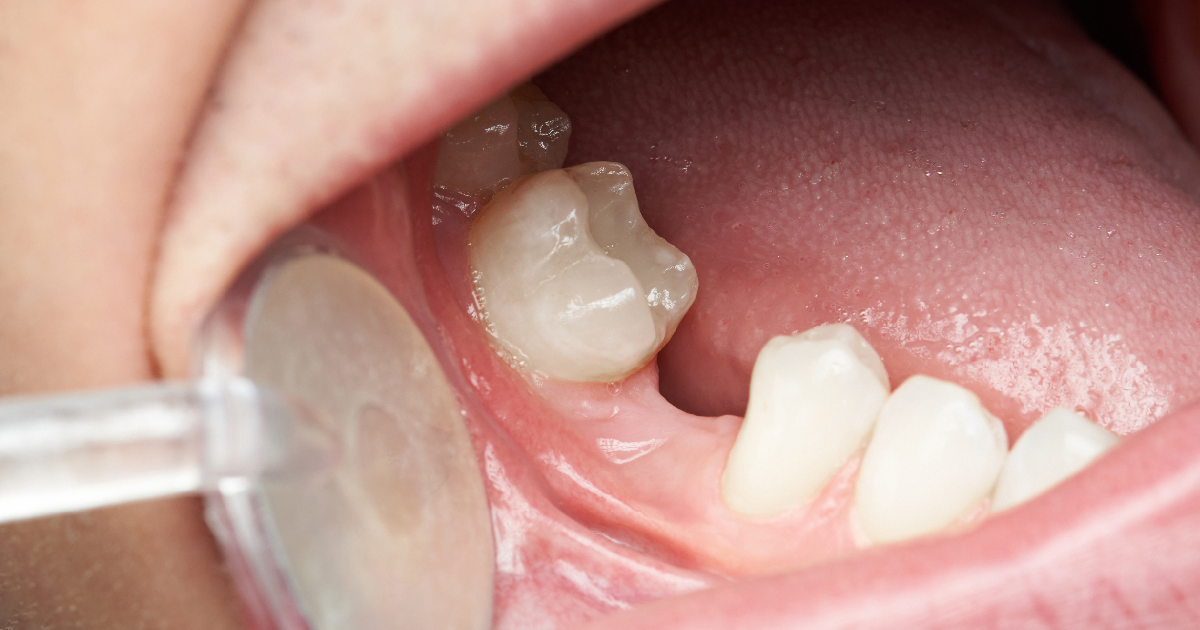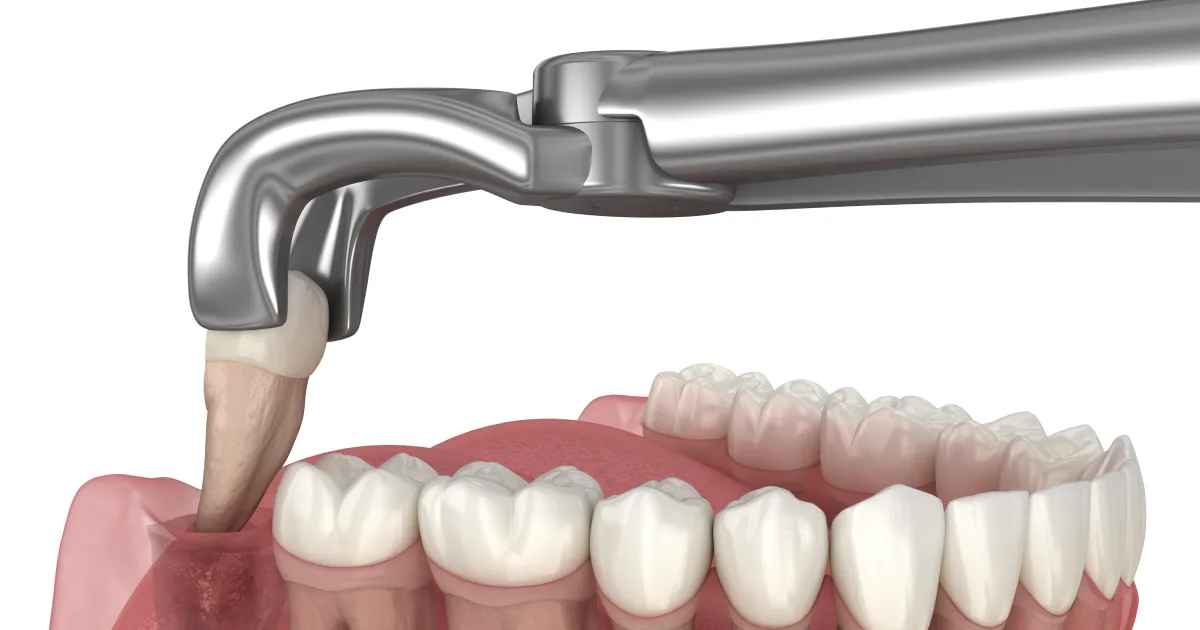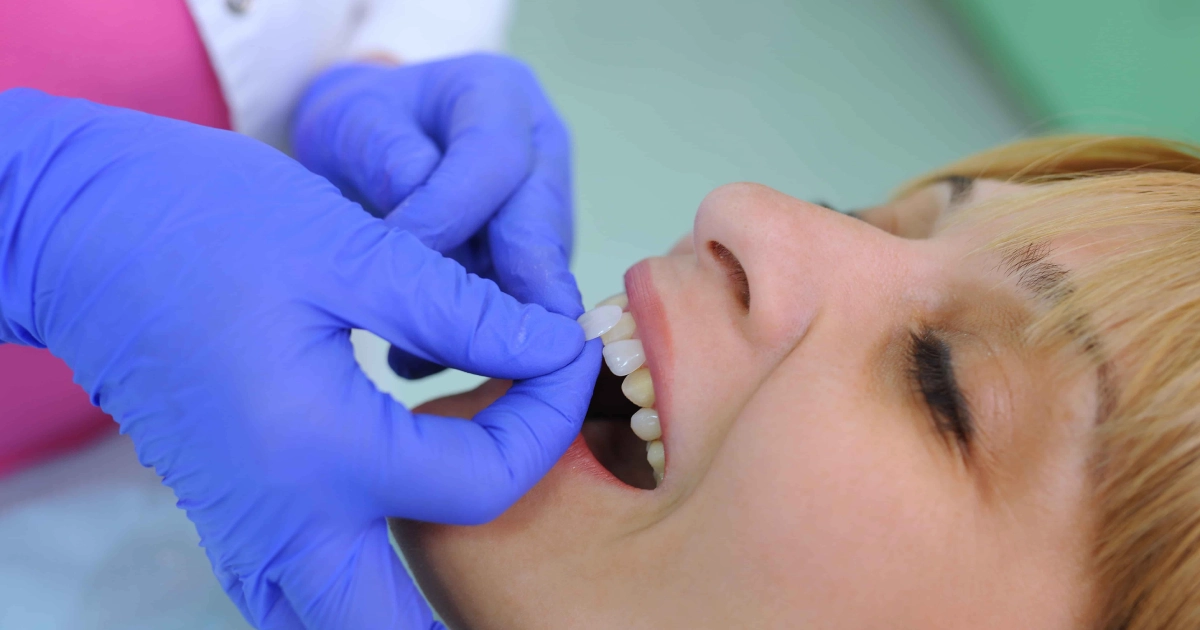Table of Contents
Living with constant dental discomfort isn’t just painful. It also affects every aspect of your life. From skipping social events because you’re embarrassed to smile, to limiting your meals because chewing hurts, the day-to-day strain adds up. When dental issues are widespread, no single fix can bring lasting relief.
This blog breaks down how full mouth reconstruction addresses extensive oral health problems through a carefully planned treatment process. You’ll learn who benefits from it, what the full mouth rehabilitation process involves, how it differs from full mouth dental Implants, and why long-term function and confidence often go hand-in-hand.
Understanding Full Mouth Reconstruction
Full mouth reconstruction involves a complete overhaul of the upper and lower arches. It is structurally driven and functionally necessary for those whose oral health has reached a critical point. While aesthetics naturally improve through the process, this treatment is primarily about restoring integrity to the dental foundation.At 24th Street Dental Biltmore
Who Benefits from This Type of Care?
This isn’t a cosmetic upgrade for mildly misaligned teeth or a few cavities. It’s a solution for those who have suffered:
- Widespread tooth decay or erosion
- Periodontal disease that has destabilized teeth and bone
- Malocclusion contributing to chronic jaw pain or tension headaches
- Enamel wear from years of grinding or acid erosion
- Extensive dental trauma
- Multiple missing teeth impacting speech and nutrition
What these cases have in common is that single-procedure dentistry can no longer offer relief or function. As such, a full mouth reconstruction becomes a necessity rather than a luxury.
How a Total Mouth Makeover Improves Quality of Life
A total mouth makeover isn’t just about fixing dental problems; it addresses their consequences. Tooth loss and decay often lead to nutritional limitations, difficulty in enunciation, chronic infections, and emotional strain.
Patients who complete reconstruction frequently report:
Relief from facial and jaw pain
Malocclusion and worn or missing teeth often shift the bite, causing muscle strain in the jaw, face, and even neck. Over time, this imbalance contributes to temporomandibular joint (TMJ) discomfort, recurring headaches, and pain during chewing or speaking.
Full mouth reconstruction restores alignment. This effect significantly reduces pressure on the TMJ and surrounding musculature. As teeth are rebuilt and balanced, the muscles relax, bringing measurable relief.
Renewed ability to enjoy a variety of foods
Missing teeth, unstable dentures, or painful cavities limit what patients can eat. Tough or fibrous foods become impossible to chew, leading many to avoid raw vegetables, meats, or anything crunchy.
Restored dentition brought about by a full mouth reconstruction brings back the freedom to chew properly. Patients often report rediscovering foods they had given up years ago, improving not just nutrition but the simple joy of eating.
Greater self-assurance in personal and professional settings
Dental issues have a quiet but significant impact on self-esteem. People may hide their smiles, avoid speaking in public, or worry about bad breath and appearance.
After full reconstruction, many patients experience a powerful shift in confidence. With a stable, natural-looking smile, they feel comfortable engaging in conversations, presenting at work, or participating in photos without hesitation.
Reduced dental emergencies
Chronic dental problems often mean recurring visits for infections, cracked teeth, or loose fillings. These short-term fixes rarely last and often escalate into more serious issues. A complete dental reconstruction addresses the root causes.
By restoring structural stability and eliminating decay or compromised restorations, it reduces the need for emergency dental care and improves long-term predictability.
A sense of peace about their long-term oral health
Before reconstruction, many patients live in constant concern over which tooth will break next or when pain will strike. Full mouth rehabilitation provides clarity.
With a treatment plan in place and the work complete, there’s comfort in knowing the mouth is stable, clean, and functioning properly. This assurance reduces daily stress and allows patients to focus on living rather than worrying about dental issues.
Breakdown of the Full Mouth Rehabilitation Process
The full mouth rehabilitation process is an in-depth treatment protocol typically spanning several months. It starts with data collection: CT scans, intraoral photos, digital bite analysis, and periodontal measurements. From there, a comprehensive plan is created, often in stages.
Common Procedures in a Full Mouth Plan
- Dental Implants: Titanium posts are surgically placed to support crowns or bridges when teeth are missing or extracted.
- Fixed Bridges: For patients who cannot undergo implant surgery, bridges anchored to neighboring teeth fill the gaps.
- Crowns: Used to rebuild teeth compromised by fracture, decay, or root canal therapy.
- Veneers: For structurally sound teeth that require reshaping, veneers create harmony in alignment and color.
- Periodontal Treatments: Scaling, root planing, or gum surgery if infection or inflammation is present.
- Orthodontic Alignment: In some cases, aligners or braces are used to reposition the bite before placing restorations.
- Full or Partial Dentures: When several teeth are missing and implants aren’t an option, high-quality dentures are considered.
Each plan is sequenced strategically. Urgent infections or bone loss are handled first; then, temporary restorations may be placed as permanent options are fabricated.
Living with the Results of a Full Mouth Dental Makeover
After your treatment plan is complete, the benefits become clear in daily habits:
- You chew comfortably without shifting or soreness.
- Your speech becomes clearer without gaps or dentures slipping.
- The jaw aligns better, alleviating TMJ strain.
- Your smile looks natural, not artificial or overdone.
Long-term success depends on maintenance: regular cleanings, a customized nightguard if grinding is an issue, and check-ins for restoration adjustments.
Full Mouth Dental Implants vs Reconstruction: What’s the Difference?
It’s easy to confuse Full Mouth Dental Implants with Full Mouth Reconstruction, but the scope is different.
- Full mouth dental implants refer specifically to the replacement of all teeth using implant-supported restorations. Patients typically receive All-on-4 or All-on-6 solutions, where four to six implants anchor an entire arch of teeth.
- Full mouth reconstruction, in contrast, may use implants, but also involves preserving any remaining viable teeth. It blends implantology with traditional dentistry to maintain as much natural structure as possible.
So, while implants can be a part of the reconstruction, the latter is broader and more personalized.
Analyzing the Cost of Full Mouth Reconstruction
The cost of full mouth reconstruction is substantial. It often ranges from $25,000 to over $80,000. The cost depends on the number of implants, whether bone grafting is needed, the type of restorations used, sedation options, and the length of treatment.
Cost Factors Include:
- Number of teeth being treated or replaced
- Implant materials and surgical complexity
- Lab work for custom prosthetics
- Follow-up procedures and adjustments
Insurance may help, especially if tooth loss is due to trauma or medical complications. Many clinics also offer financing plans to spread out the expense.
Why the Cost Reflects Value
This is not a cosmetic splurge. It’s a medically necessary transformation that restores oral function, prevents long-term complications, and replaces piecemeal treatment plans with a permanent solution.
Spotlight: Full Mouth Reconstruction in Phoenix, AZ, at 24th Street Dental Biltmore
For those considering full mouth reconstruction in Phoenix, AZ, 24th Street Dental Biltmore offers comprehensive solutions rooted in both clinical excellence and patient consideration.
Our Distinct Approach
- Extensive Evaluations: The team conducts structural, periodontal, and bite analyses to understand the full scope of damage.
- Coordinated Treatments: Using a mix of implants, crowns, bridges, and prosthetics, they design a strategy that restores health first, aesthetics second.
- Versatile Skillset: Whether the issue is worn enamel, jaw dysfunction, or missing teeth, their multi-specialty expertise handles complex reconstructions efficiently.
- Individual Planning: No standard templates—just focused, need-based care. If your case requires preserving viable teeth or supplementing bone loss, those options are explored thoroughly.
Our clinic’s reputation for full-mouth dental makeover results comes from years of experience working with complicated oral cases that demand both precision and vision. Begin Your Journey to a New Smile!
Frequently Asked Questions
How long will this take?
Simple reconstructions may take three to six months. Complex cases with implants and healing phases may take a year or longer.
What if I’m afraid of dental procedures?
Sedation options are available, including oral sedatives, IV sedation, and general anesthesia when required.
Am I too old for this treatment?
Age is not a contraindication. Many patients in their 60s and 70s benefit from reconstruction, especially if they’re in good overall health.






